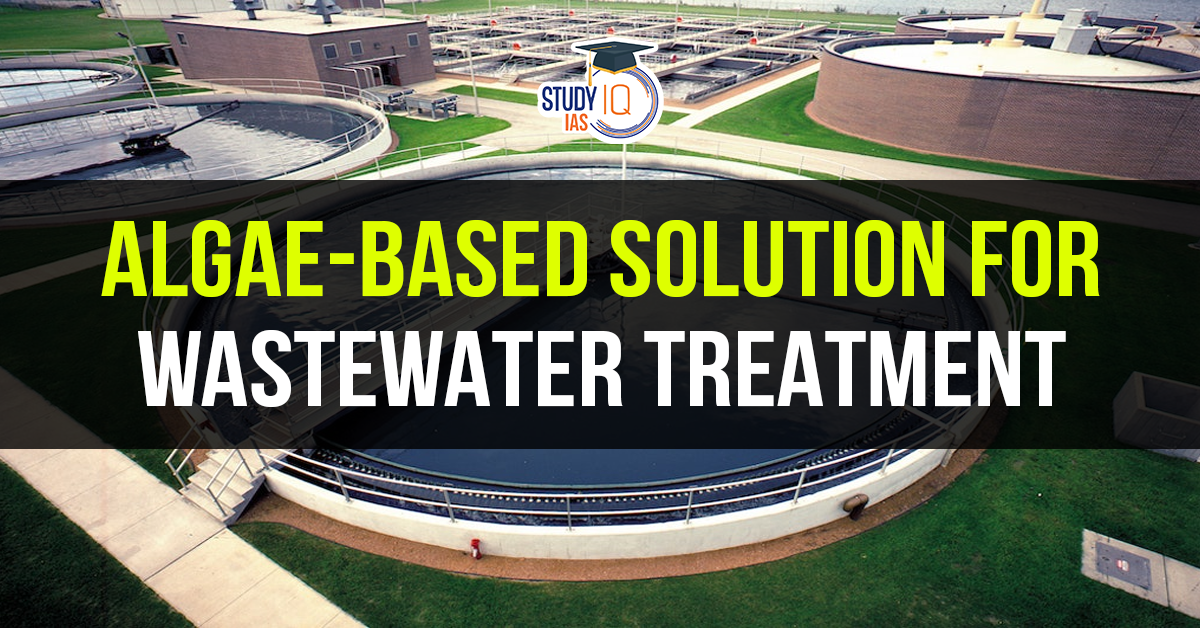Table of Contents
Algae-based wastewater treatment systems offer a sustainable and eco-friendly approach to cleaning wastewater. Algae, photosynthetic microorganisms, can effectively remove nutrients like nitrogen and phosphorus, as well as organic matter, from wastewater.
Proposed Microalgae-Bacterial Consortium Approach
- It uses a photo-sequencing batch reactor (PSBR), integrating bacteria and microalgae.
- Algae produce oxygen through photosynthesis, reducing the need for external aeration.
- The system converts ammonia into less toxic forms like nitrate and eventually into nitrogen.
- The algae-bacteria consortium facilitates ammonia oxidation and nitrate reduction through different stages of the process.
- This bio-process saves 50-90% of energy costs compared to traditional systems.
Advantages
- Cost-effective: Significantly reduces energy costs for oxygen supply and aeration.
- Conventional ammonium removal relies on aeration, an energy-intensive process. Aeration accounts for up to 90% of a treatment plant’s energy consumption.
- Environmentally sustainable: Avoids the use of energy-intensive mechanical processes and chemicals.
| Wastewater Generation in India |
|
How Algae-based Solution Works?
- Nutrient Uptake: Algae consume nutrients like nitrogen and phosphorus from the wastewater, using them for growth and reproduction.
- Organic Matter Degradation: Algae and associated bacteria break down organic matter in the wastewater, reducing biochemical oxygen demand (BOD).
- Oxygen Production: During photosynthesis, algae release oxygen, creating a favorable environment for aerobic bacteria to thrive and further degrade organic matter.
- Biomass Production: The growth of algae results in the production of biomass, which can be harvested and used for various purposes, such as biofuel production, animal feed, or fertilizer.
Benefits of Algae-Based Wastewater Treatment
- Nutrient Removal: Efficient removal of nitrogen and phosphorus, reducing nutrient pollution in water bodies.
- Organic Matter Reduction: Significant reduction in BOD, improving water quality.
- Energy Production: Potential for producing biofuels from harvested algal biomass.
- Resource Recovery: Valuable byproducts like fertilizer can be obtained from the process.
- Reduced Sludge Production: Compared to conventional methods, algae-based systems produce less sludge, reducing disposal costs.


 Ramsar Sites in India 2025 List: Names, ...
Ramsar Sites in India 2025 List: Names, ...
 List of National Parks in India 2025, Ch...
List of National Parks in India 2025, Ch...
 Bonnet Macaques: Habitat, Features, Beha...
Bonnet Macaques: Habitat, Features, Beha...

























